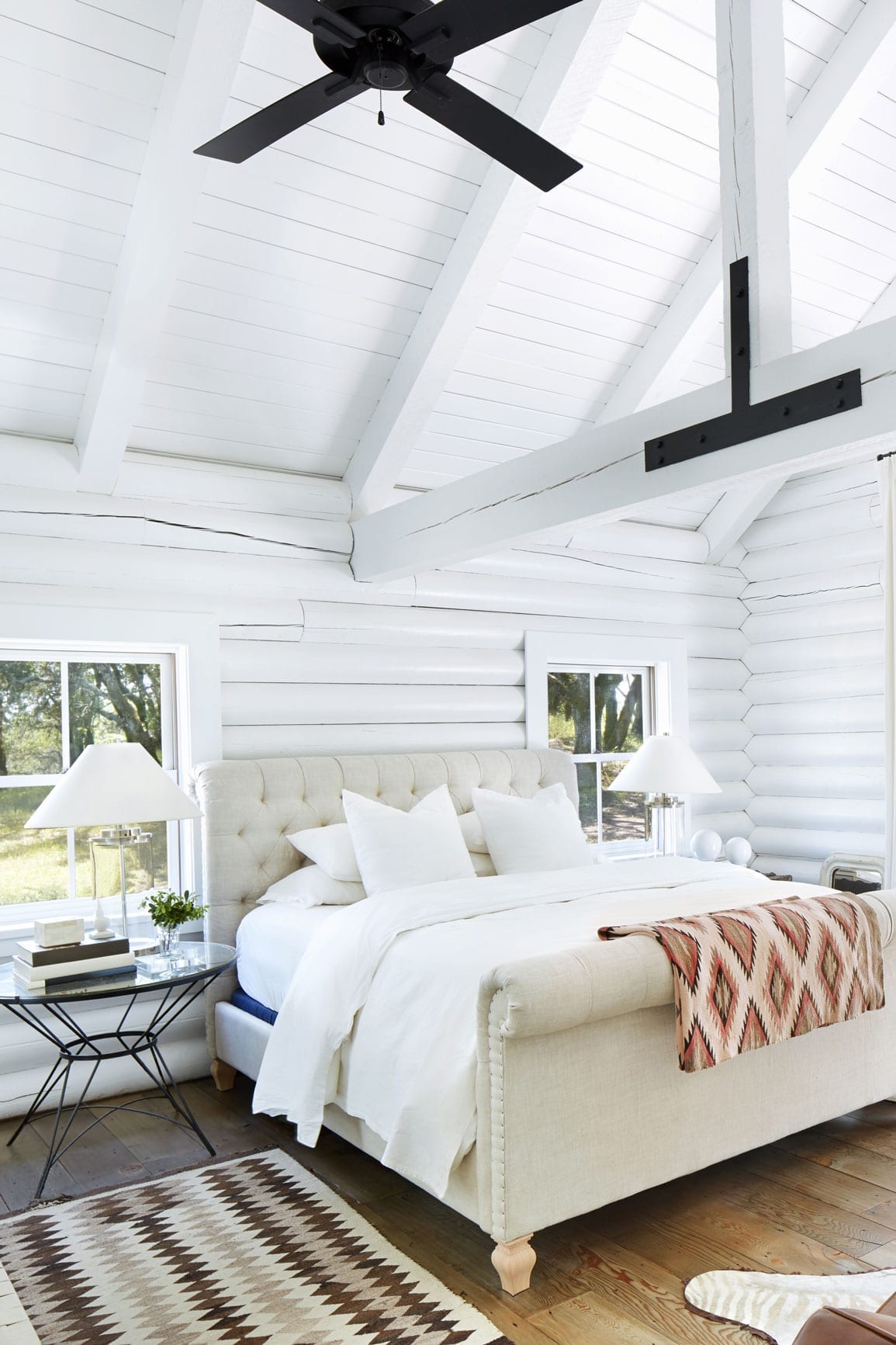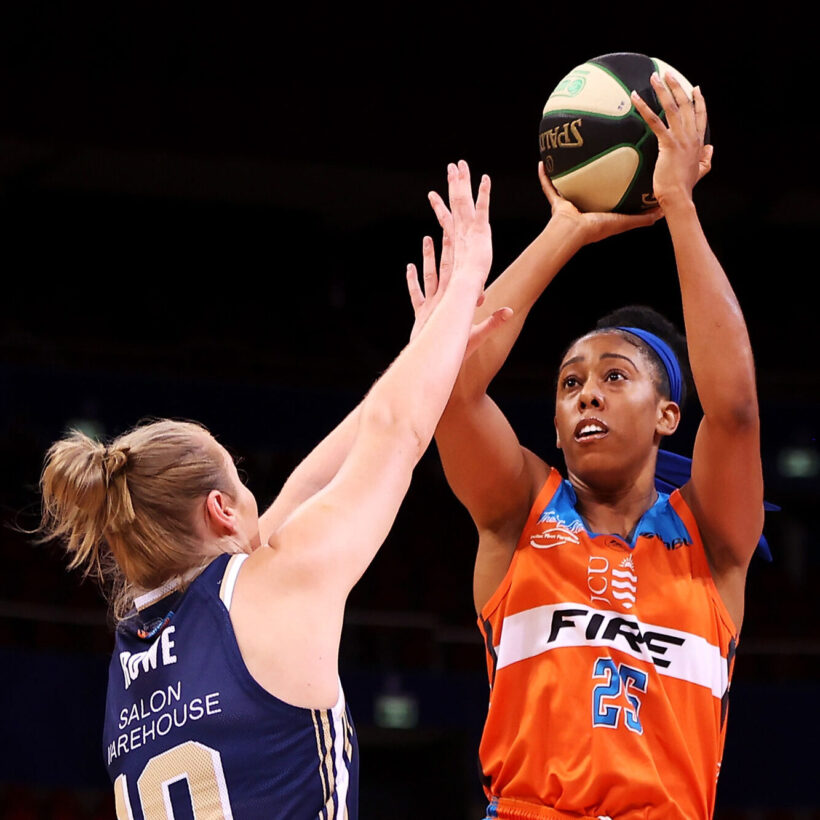You have jumped on the juice trend. You have given up dairy. You try to cut back on how much red meat you eat — and you even do meatless Mondays. You have tried everything from indoor cycling to boxing and hot yoga, and you even crossed the finish line of a 5K or two last year. Overall, you would consider yourself fairly healthy — but you wake up every single morning feeling tired. Or as you put on Instagram sometimes: #exhausted. You are definitely not the only American who struggles with sleep issues, considering the Centers for Disease Control and Prevention estimates 1 in 3 do not get enough regular shut-eye.
While watching that extra episode on Netflix is tempting in the moment, sleep expert Lauren Broch, Ph.D. explains not getting enough rest can jeopardize our emotional and physical health. “With the advent of the light bulb and modern technology, people are able to work and play 24/7. People live more stressful lives with increased work demands and many people describe checking their emails up until bedtime,” she says. “We tend to de-emphasize the need for sleep and some associate the need to sleep with being lazy or not as energetic and youthful. The result: chronic sleep deprivation from burning the candle at both ends that makes us more grumpy and less able to make well-informed decisions and less able to enjoy relationships and experiences.”
For a happier, healthier — and less cranky 2019 — here is what you need to know about finally getting more and better sleep.
First: how much sleep do you really need?
Sleep expert and author Jacob Teitelbaum, M.D. explains much like shoe sizes, the optimal amount of sleep varies from person to person. It also changes based on your age, as newborns sleep in the double-digits daily, while a 35-year-old might be able to get by with seven hours. You probably feel the most well-rested during the weekend, when you do not have to wake-up to your glaring alarm, but it is likely not possible to clock in nine to 10 hours with most professional, hectic schedules.
That is why Broch suggests analyzing what works best for you when you are on vacation. “To figure out how much sleep you might need given the variability between individuals, I recommend filling out a one to two weeks sleep logs while on vacation and able to sleep as much as you need,” she says. When you are on the flight home, she says to add up the total sleep per night and then divide by the number of night and you get a good estimation of your actual sleep need per night. This gives you a great ballpark, but keep in mind the standard, the general rule of thumb for most adults is seven to eight hours per night.
Why do people struggle to sleep?

Is it your never-ending to-do list? Your uncomfortable mattress and tattered pillows? Are you sensitive to light and noise — or both? Does your partner snore, toss and turn or get up hours before you need to? There are countless factors that could impact your sleep, from what you eat to your bedtime routine and outside factors. If you are unsure of what is causing you to be at odds with the Sandman, Broch suggests taking an inventory of everything — and anything — that is tied to sleep. Start with your bed, then move to the temperature of your bedroom, which should be between 60 and 68 degrees. Then think about your late-night snacking preferences: sugar is a no-go, but a cup of hot calming tea or vegetables low in natural sweetness like carrots are allowed. You will start to notice various aspects that could be improved, and if you are in doubt, it is suggested to talk to a medical professional who can help you make adjustments.
Most importantly though, Broch suggests making shifts to your schedule. As children, our parents help us mind when we turn the lights off and when we rise in the morning, but as adults, we lose track, creating inconsistency and sometimes poor sleeping hygiene. “The time you arise every morning — even on weekends — is the most important factor in determining when you will get sleepy the next night,” she explains. That and a positive mindset: “If you are tense and going through a difficult time or if you are just the type that tends to worry and have difficulty winding down, I recommend making a ‘worry’ list. Set aside time right before or after dinner time to write down issues or relationships that are on your mind. And then some possible resolutions or next steps to help you feel more in control of them,” she adds.
What products can help us sleep better?
While it’s always best to chat with a trusted physician before taking supplements or making a drastic change, there are various trusted products that may help.
Revitalizing Sleep Formula
If you want a natural way to feel sleepier without getting a prescription, Teitelbaum suggests this mix of six herbs, featuring the sleep-inducing properties of valerian, passionflower, 5-HTP, theanine, hops and lemon balm. Take one with a small glass of water before heading to sleep, and your system will gradually shut itself off to allow you the rest you need.
Buffy Cloud Comforter
Though we have all made it through a rough night’s sleep abroad on a hostel bed or an Airbnb mattress that was far outdated, your at-home space should be a haven. If your bedspread or comforter needs a refresher, consider using this eco-friendly option that uses recycled plastic bottles and eucalyptus plants. It is super-soft and thanks to the plant-based ingredient, it will work to cool your skin throughout the night so you do not overheat.
SpaceFoam Cooling Memory Foam Pillow
Where you rest your head every night needs to be soothing at first touch — otherwise, you will be fluffing and wiggling until sunrise. Memory foam is an effective material since it molds to your specific need. With this option featuring breathable technology that is 75 percent lighter than traditional memory foam, it will feel even softer. As a bonus, it also stays cooler and packs lighter.
Sleep Master Sleep Mask
It can take some getting used to, but once you find the right option, a sleep mask can be a game-changer in the quality of your rest. Because it blocks out light from every direction, you will not have to worry about any flickers during your slumber with this mask. Made of super-soft fabric, you can turn any which way and still be protected from the rays.
Gravity Blanket
Want to feel like you are cuddling, even if you are not? A weighted blanket can help you feel tranquil instantly, thanks to the added weight. Though it is not for everyone, many people swear by it: A 2015 study showed that a gravity blanket can have calming effects on those suffering from insomnia and lead to a better night’s sleep.
We only recommend products we have independently researched, tested, and loved. If you purchase a product found through our links, Sunday Edit may earn an affiliate commission.







